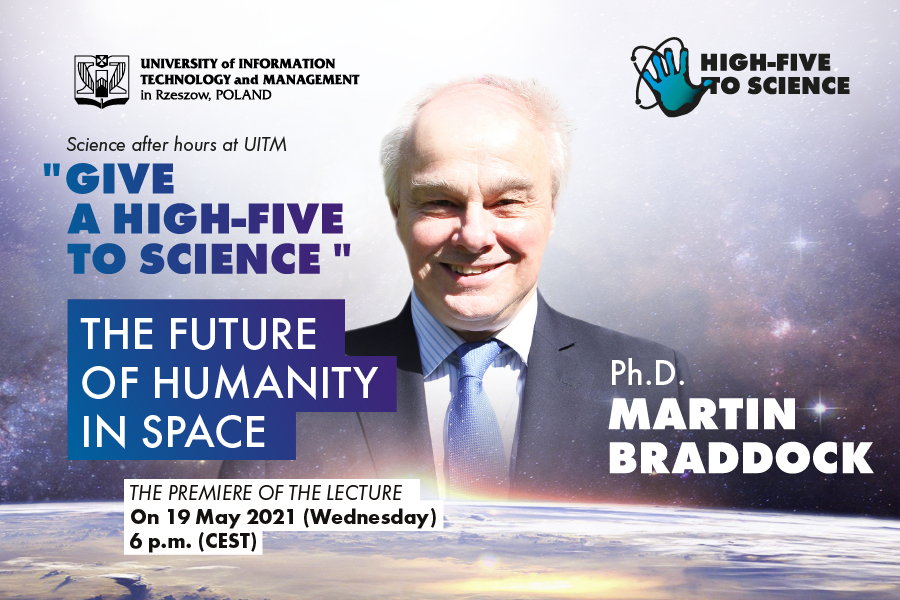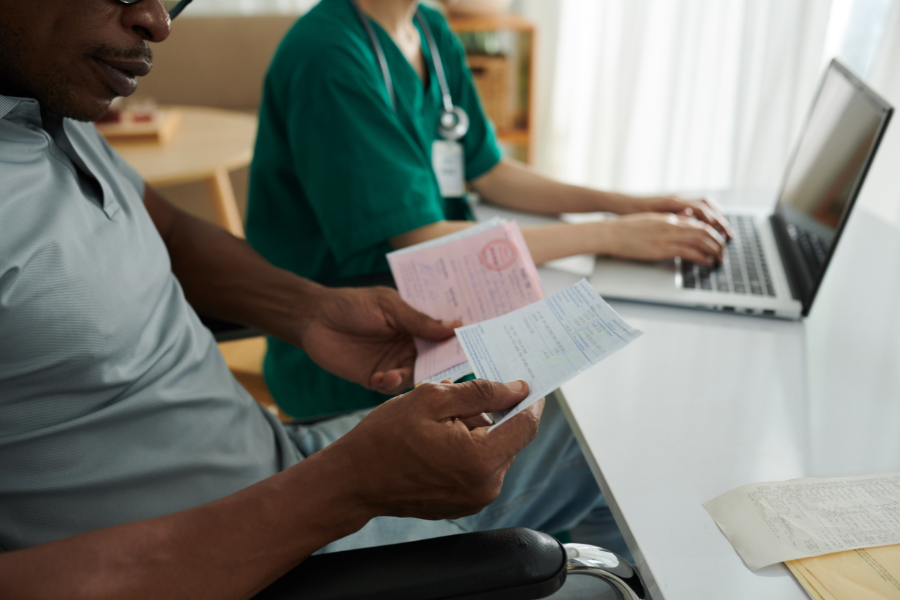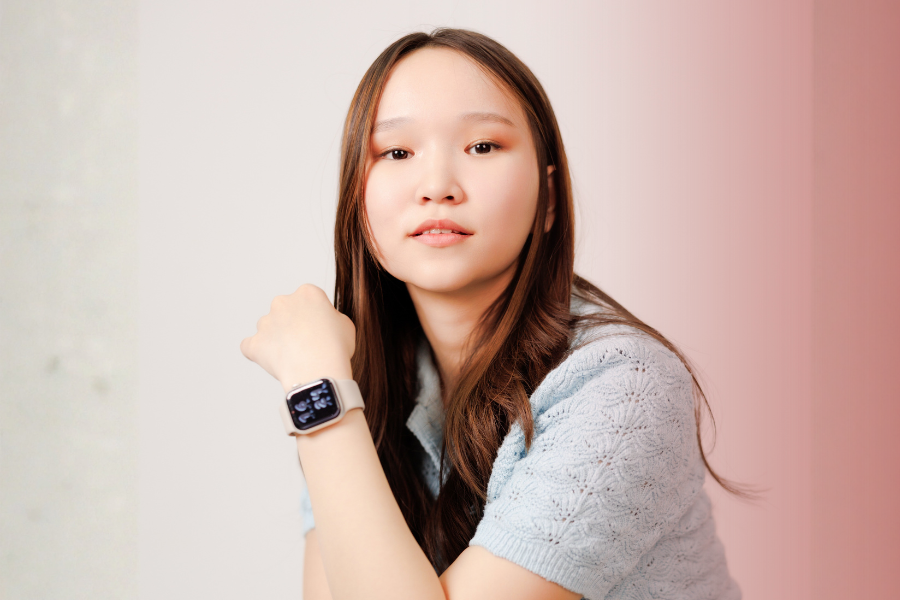The Future of Humanity in Space
What does Space have to do with the Pharmaceutical Industry? – Space, Medicine and Pharmacology – the topic of the next meeting under the „Give a High-Five to Science” project.
What are the stages of drug discovery and development? Does microgravity provide an opportunity for drug development? What drug research has been done in space and how can the effects of the space environment be countered in the future? – These questions will be answered by Martin Braddock, Ph.D., as part of the „Give a High-Five to Science” project on May 19, 2021.
Humans are not adapted to living and working in space. Space travel rarely lasts more than 6-9 months. During this time, astronauts are exposed to harmful factors that adversely affect both their physical and mental well-being. What challenges will need to be overcome to make long-term missions possible? How will it be possible to conduct scientific drug research in Space?
„During the lecture entitled 'The Future of Humanity in Space. Identification of risks and opportunities for modern medicine and pharmacology”, I will discuss the issue of safety of space missions and highlight the negative effects of microgravity on astronauts’ health, as well as present preventive measures,” says Martin Braddock Ph.D., a scientist from the UK, and adds, „First and foremost, however, I will focus on how the unique environment of space affects the development of the pharmacological industry. I will present the formulation development process that, combined with the application of modern technology, leads to the production of new drugs. I will also discuss aspects of the space environment that have contributed to progress in identifying potential drug applications. I will also attempt to review recent advances in the areas of crystallography and verification and validation of in vivo drug development processes.”
Martin Braddock Ph.D., is a scientist – a biochemist, biologist and project manager with over 34 years’ experience. He worked at prestigious universities and in the life sciences industry. He worked at the University of Oxford for many years and is currently a Fellow of the Royal Society of Biology and the Royal Astronomical Society. He has authored over 180 scientific publications and co-invented 8 patents. Martin Braddock is also a member of Sherwood Observatory and the Mansfield and Sutton Astronomical Society.
What else will Martin Braddock Ph.D., talk about as part of the „Give a High-Five to Science” series? – see video teaser
The meeting entitled „The future of humanity in space. Identification of threats and possibilities of modern medicine and pharmacology” will be held on May 19 this year. (Wednesday) at 6 p.m. (CEST) on UITM Facebook. The lecture will be held in English with subtitles in Polish.
„Give a High-Five to Science” initiative supports the educational process at schools, universities and other research institutions. Subsequent lectures within the framework of the „Give a High-Five to Science” project will be held every third Wednesday of the month. The topics will include health prevention, economics, dietetics, new media and the current situation in the world and in Poland.
Details of future lectures will be published on the UITM website and on „Give a High-Five to Science” project website.




